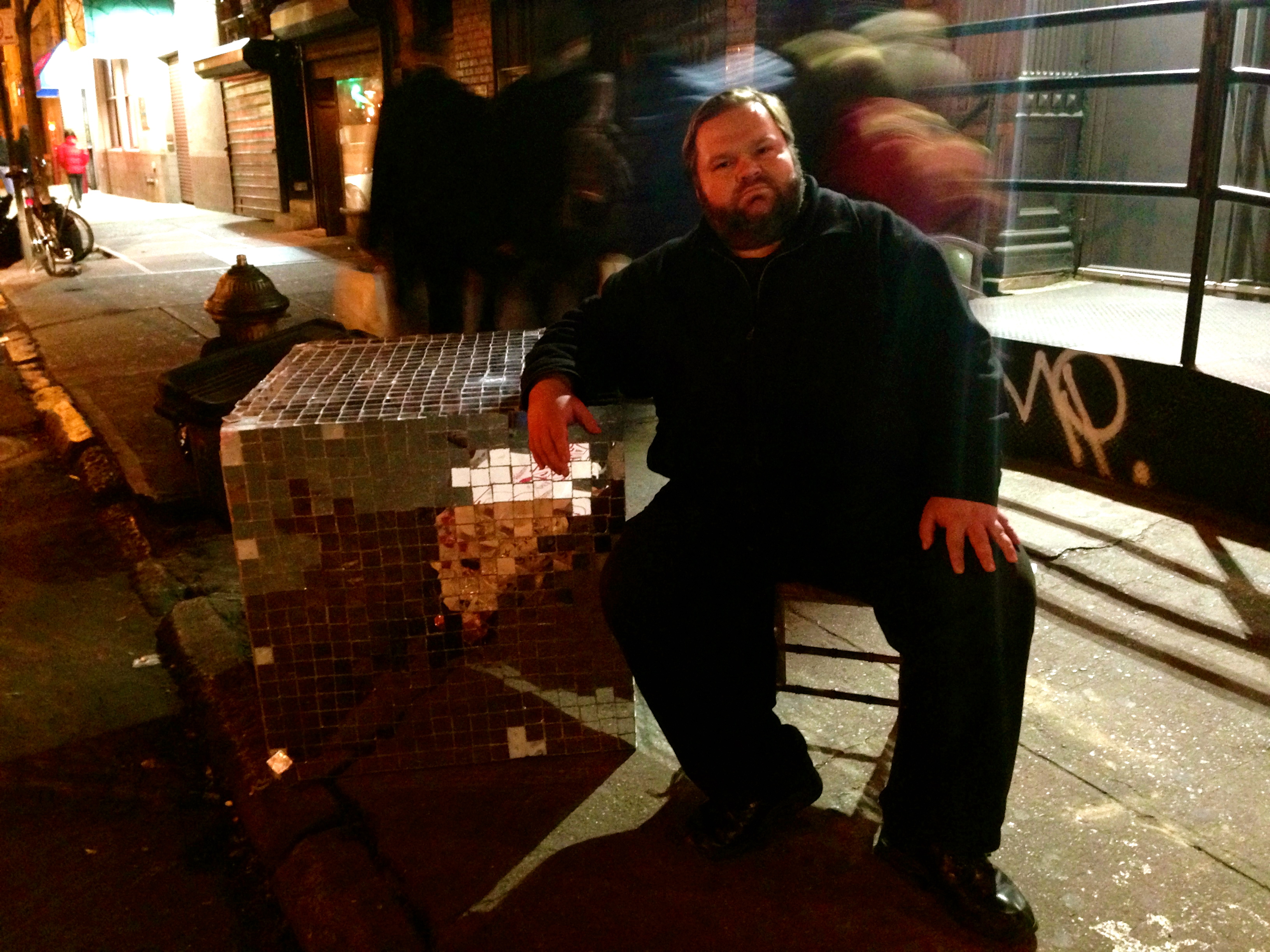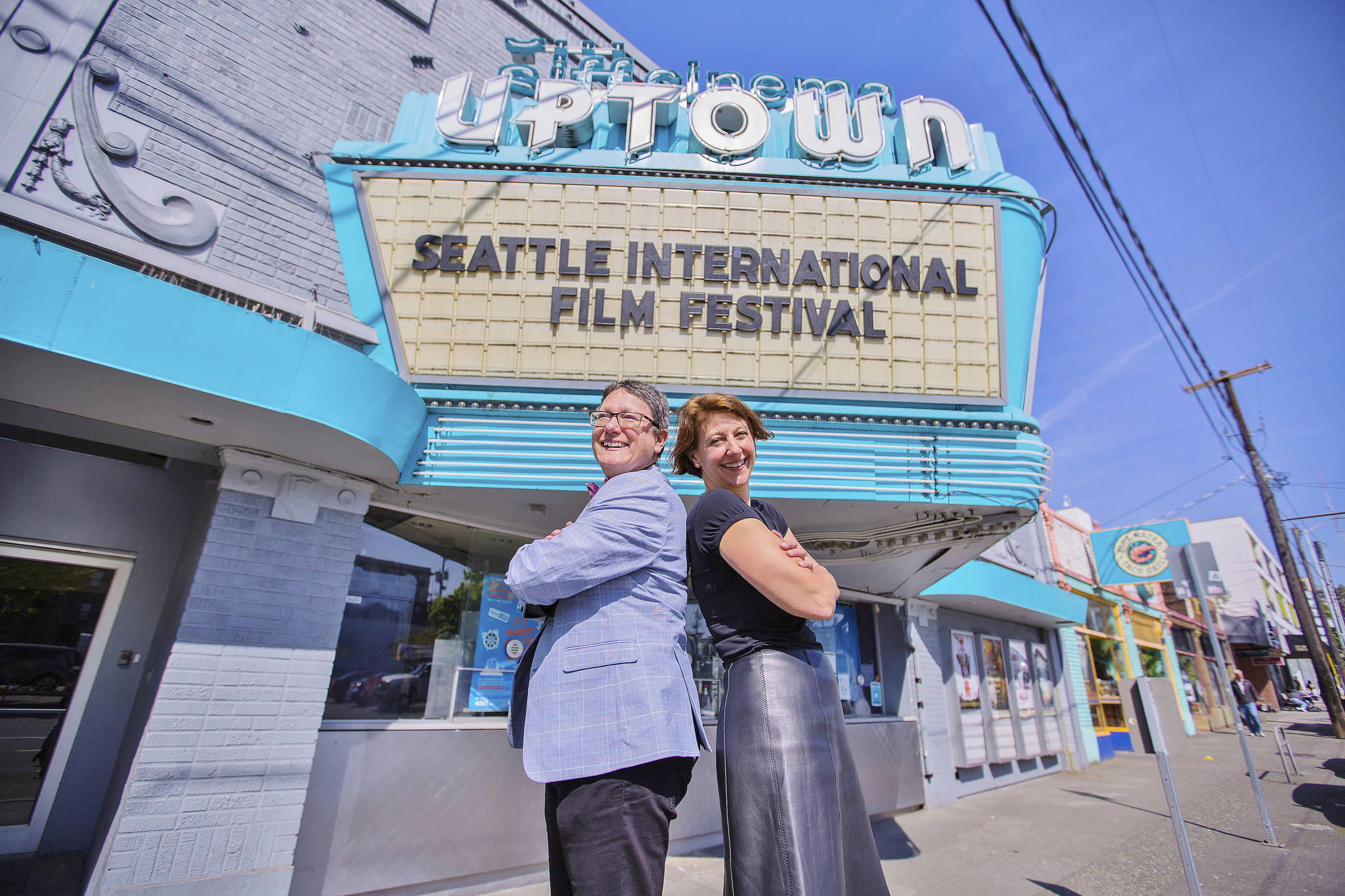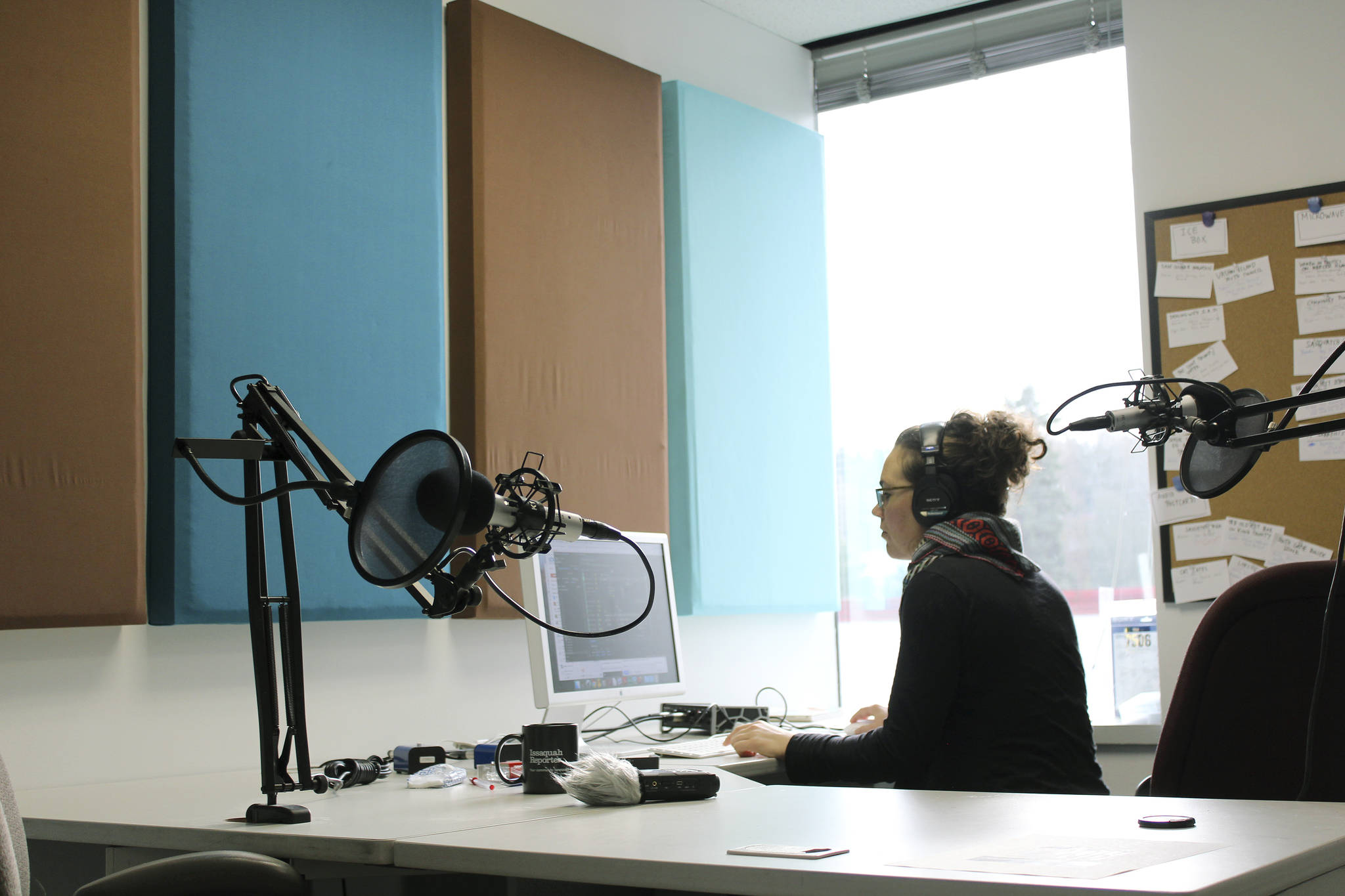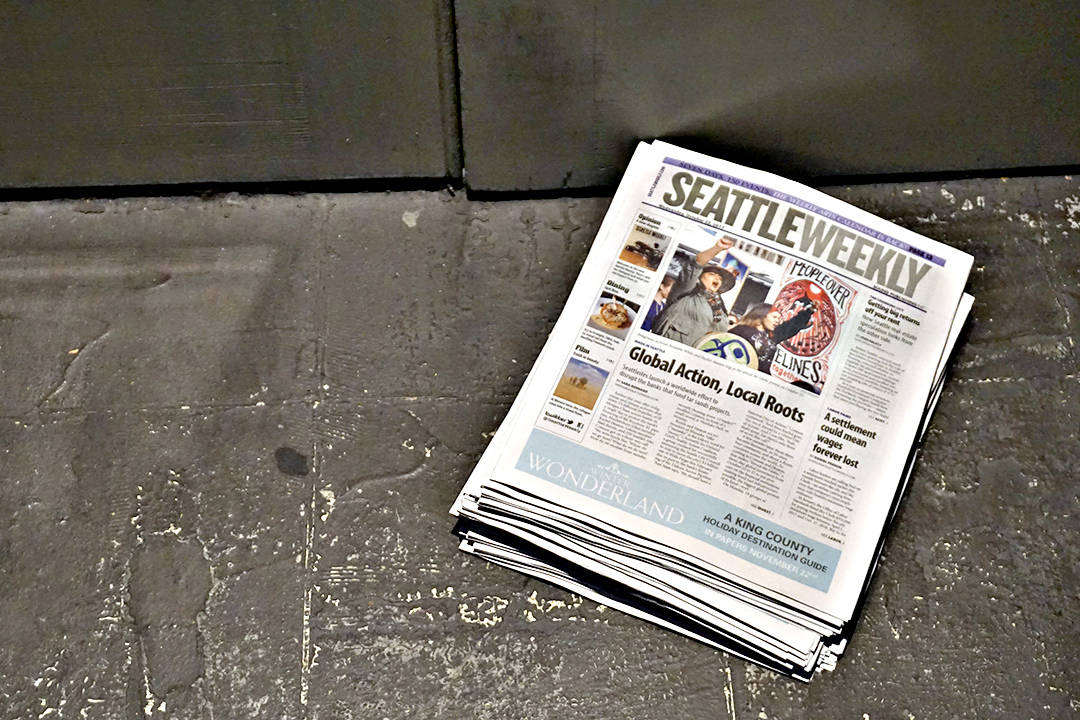Mike Daisey is a storyteller. As such, he’s always on the lookout for a narrative hook. So when he’s asked how his life has changed in the past two years (if he is, for instance, still living in the same place), he tells a story and then immediately begins to weave it into something larger.
“I am living in a different place,” says the onetime Seattleite and current Brooklyn resident. “I moved one block from Carroll Street between Court and Clinton to First Place between Court and Clinton. It was a really rough move. It was such a short move that we didn’t get movers. We thought, ‘It’s so close; we’ll just carry everything over ourselves.’ Terrible decision. Profoundly terrible decision.”
“That’s actually not a bad metaphor for the rest of it,” he continues. “A lot has changed, but not a lot has changed.”
Two years ago, Daisey was wrapping up a successful run of The Agony and the Ecstasy of Steve Jobs at the Rep. That acclaimed monologue, about his love of Apple products and the inhumane Chinese factory conditions that make those products possible, toured nationally while Jobs was terminally ill. After Jobs’ death, Daisey wrote an appreciation in The New York Times, which favorably reviewed his show. His monologue was excerpted on This American Life. Then it all fell apart. A Marketplace reporter discovered that Daisey’s monologue contained fabrications. Daisey was again featured on This American Life, this time apologizing to host Ira Glass on a segment titled “Retraction” that quickly became the program’s most-downloaded episode ever. Daisey’s career—hell, his life—seemed over.
“I feared everything would disintegrate around me, and I would never be able to tell a story again,” Daisey recalls. “And that I would be divorced and alone. I just imagined a full implosion.”
And yet here he sits before me at T.S. McHugh’s in Lower Queen Anne, fresh off the opening night of American Utopias, the first of two new monologues being seen at the Rep this month. He is, as he has intimated, largely unchanged. He does now wear a beard (referring to himself jokingly as “Evil Mike Daisey”). But he is still engaging, thoughtful, and large. He is also still willing to tangle with high-profile, hot-button issues, despite the inevitable scrutiny that any of his stories will bring.
“I am the artist in American theater most likely to be fact-checked,” Daisey says, much chagrined. “Even though no one else ever would be. Nor do I think they should be.”
Both of Daisey’s new shows target the same liberal-minded theater audience to which The Agony and the Ecstasy appealed. Fucking Fucking Fucking Ayn Rand dissects the life and legend of the conservative icon and author (Atlas Shrugged, The Fountainhead ). I saw and liked American Utopias, a three-pronged travelogue anchored by the Occupy Movement, though much of its humor and heart comes from the experiences Daisey alleges he had at Burning Man and Disney World.
Daisey delivers his story clad in black, seated at a table with a pile of papers before him—the outline for his extemporaneous work—and a glass of water. Wiping his brow continuously, he sometimes swells his tale into the apoplectic; you worry he’s a few short steps from a coronary event. American Utopias is a two-and-a-half-hour, single-act performance. Two hours in, Daisey lovingly mocks us here in the audience. “Provocative,” he says, miming a post-show espresso in his hand, “if a bit long.”
The show is entertaining and thought- provoking, yet bloated and not particularly polished. A joke comparing a poorly erected tent to erectile dysfunction drew groans; on second mention, it received well-earned silence. By contrast, The Agony and the Ecstasy was a well-oiled and -edited empathy machine. This faster, baggier approach is by design, Daisey tells me.
Even following his public disgrace, he continued performing the Steve Jobs monologue, eventually logging more than 300 shows. But the pressure of his schedule and the scandal took its toll. “I lost my mind and got a little suicidal,” he says. “It was pretty bad. I wasn’t hospitalized, but there was a period of time where it seemed prudent to everyone that people be around me. And I think that was a really good idea.”
When he decided to return to the stage last fall at New York’s Public Theater, Daisey discarded his focused approach and adopted a volume model, performing nine new shows over a six-month span (including American Utopias and the Ayn Rand piece). It’s a pivot toward the topical, an unlikely fit for the long-lead world of American theater. Thus, he’s currently working on another show about journalism (inspired by his own scandal), and one on America’s gun culture.
In a way, Daisey’s new work has returned him to the realm of journalism, where The Agony and the Ecstasy went so wrong. But something has changed. Watching him rail against injustice onstage, it is now impossible to take his tales as the absolute truth. Good thing he’s so entertaining.
mbaumgarten@seattleweekly.com








